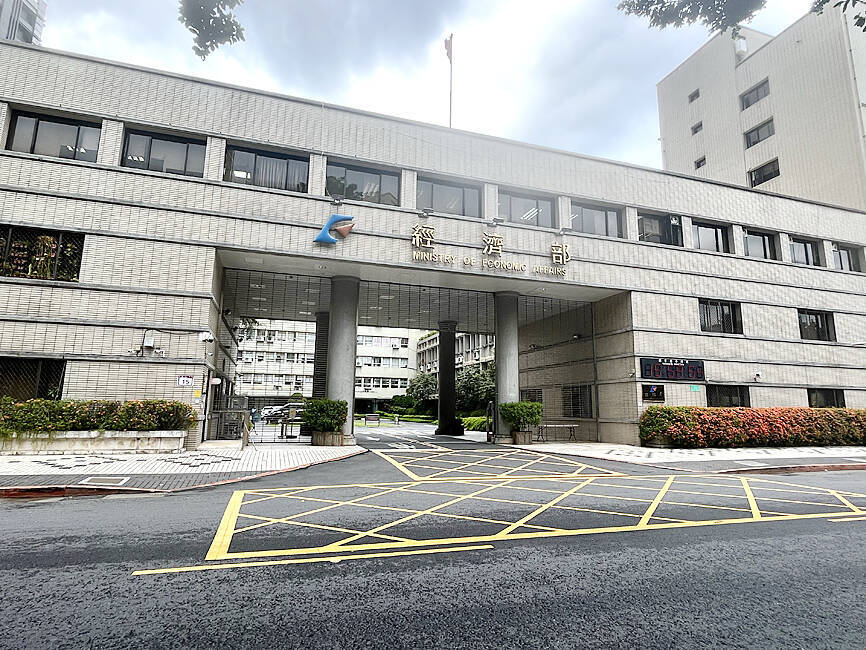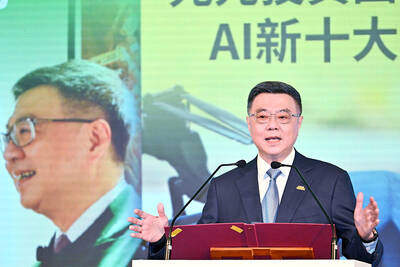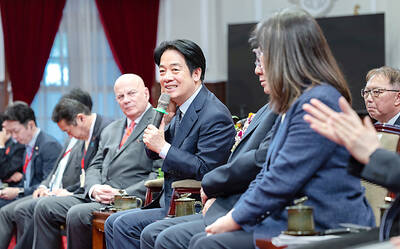A new wage subsidy program worth about NT$1.35 billion (US$43.24 million) to mitigate the financial burden faced by local enterprises following a 4.56 percent annual rise in the minimum wage is to be launched, the Ministry of Labor and the Ministry of Economic Affairs said in a statement yesterday.
The program is an extension of the payroll subsidy scheme, but has a lower threshold for eligibility, the ministries said.
Local companies that report an annual decline in revenue of 10 percent or more due to the COVID-19 pandemic would be eligible for payroll subsidies, down from a 20 percent threshold, they said.

Photo: Taipei Times file photo
The new program is to come into effect in January, they said.
As some industries have not yet recovered from the effects of the three-year-long pandemic, the program aims to help them navigate hardships and also aims to ensure the stability of the nation’s labor market, the ministries said.
The program would benefit about 180,000 full-time workers and 60,000 part-time workers, the statement said.
The government would offer subsidies of NT$920 per month for full-time workers whose monthly pay is less than the new minimum wage, down from NT$1,000 per worker, it said.
Local businesses can also apply for a subsidy of NT$560 a month for part-time workers, it said.
The payments would last for six months at most, it added.
The labor ministry in September increased the monthly minimum wage to NT$26,400 from NT$25,250, while the minimum hourly rate was lifted to NT$176 from NT$169.
The government would use its Employment Stabilization Fund for the payroll program, it said.
Small and medium-sized businesses are expected to benefit the most from the program, as the nation’s listed firms have reported combined revenue growth of 11.75 percent to NT$2.89 trillion for the first three quarters of this year, it said, citing Taiwan Stock Exchange data.

Two US House of Representatives committees yesterday condemned China’s attempt to orchestrate a crash involving Vice President Hsiao Bi-khim’s (蕭美琴) car when she visited the Czech Republic last year as vice president-elect. Czech local media in March last year reported that a Chinese diplomat had run a red light while following Hsiao’s car from the airport, and Czech intelligence last week told local media that Chinese diplomats and agents had also planned to stage a demonstrative car collision. Hsiao on Saturday shared a Reuters news report on the incident through her account on social media platform X and wrote: “I

STILL ON THE TABLE: The government is not precluding advanced nuclear power generation if it is proven safer and the nuclear waste issue is solved, the premier said Taiwan is willing to be in step with the world by considering new methods of nuclear energy generation and to discuss alternative approaches to provide more stable power generation and help support industries, Premier Cho Jung-tai (卓榮泰) said yesterday. The government would continue to develop diverse and green energy solutions, which include considering advances in nuclear energy generation, he added. Cho’s remarks echoed President William Lai’s (賴清德) comments in an interview last month, saying the government is not precluding “advanced and newer nuclear power generation” if it is proven to be safer and the issue of nuclear waste is resolved. Lai’s comment had

‘BUILDING PARTNERSHIPS’: The US military’s aim is to continue to make any potential Chinese invasion more difficult than it already is, US General Ronald Clark said The likelihood of China invading Taiwan without contest is “very, very small” because the Taiwan Strait is under constant surveillance by multiple countries, a US general has said. General Ronald Clark, commanding officer of US Army Pacific (USARPAC), the US Army’s largest service component command, made the remarks during a dialogue hosted on Friday by Washington-based think tank the Center for Strategic and International Studies. Asked by the event host what the Chinese military has learned from its US counterpart over the years, Clark said that the first lesson is that the skill and will of US service members are “unmatched.” The second

STANDING TOGETHER: Amid China’s increasingly aggressive activities, nations must join forces in detecting and dealing with incursions, a Taiwanese official said Two senior Philippine officials and one former official yesterday attended the Taiwan International Ocean Forum in Taipei, the first high-level visit since the Philippines in April lifted a ban on such travel to Taiwan. The Ocean Affairs Council hosted the two-day event at the National Taiwan University Hospital International Convention Center. Philippine Navy spokesman Rear Admiral Roy Vincent Trinidad, Coast Guard spokesman Grand Commodore Jay Tarriela and former Philippine Presidential Communications Office assistant secretary Michel del Rosario participated in the forum. More than 100 officials, experts and entrepreneurs from 15 nations participated in the forum, which included discussions on countering China’s hybrid warfare